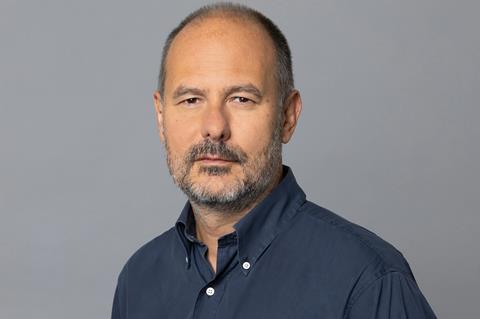
With four films and two series playing in official selection at Venice, production and distribution group Fremantle has a strong presence at this year’s festival.
Fremantle’s Italian production label The Apartment has backed five of them: it produced Paolo Sorrentino’s opening film La Grazia, Carolina Cavalli’s Horizons title The Kidnapping Of Arabella and Stefano Sollima’s out-of- competition series The Monster Of Florence.
The Apartment is also involved in Jim Jarmusch’s competition film Father Mother Sister Brother and Marco Bellocchio’s out-of-competition series Portobello.
Meanwhile, Fremantle’s Ireland-UK label Element Pictures is behind Yorgos Lanthimos’ hotly anticipated competition film Bugonia, starring Emma Stone and Jesse Plemons.
It caps a strong festival run this year for Fremantle, which also backed six films at Cannes: Mario Martone’s Fuori, Harry Lighton’s Pillion, Akinola Davies Jr’s My Father’s Shadow, Sebastián Lelio’s The Wave, Kristen Stewart’s The Chronogly Of Water and Ratchapoom Boonbunchachoke’s A Useful Ghost.
Speaking to Screen on his way to catch a flight for the premiere of La Grazia, Andrea Scrosati, group chief operating officer & CEO continental Europe at Fremantle, says the Venice line-up is a good example of the company’s portfolio approach to film.
“We don’t have a template – every project, every negotiation is different.”
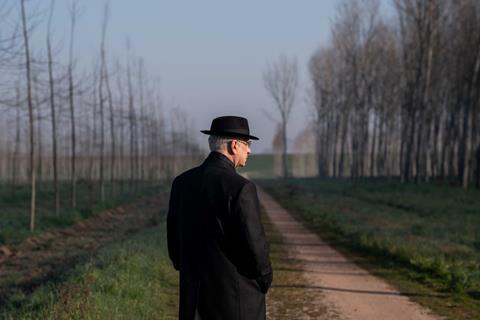
He cites La Grazia, produced through The Apartment. It partnered with Mubi which has international rights, except for Italy where Piper Film is distributing. “We cash-flowed [the film] to production, but we had a deal in place before we started shooting with both partners.”
Bugonia, produced by Element, received development financing from Fremantle. Focus Features acquired worldwide rights before it started shooting. South Korea’s CJ ENM Entertainment is also involved in the film as an English-language version of its 2003 sci-fi comedy Save the Green Planet.
Fremantle’s involvement in Father, Mother, Sister, Brother is different again. “We participate with a financing component – our intervention made it possible to close the financing through The Apartment,” explains Scrosati.
Scripted push
Fremantle is part of European media conglomerate RTL Group, itself majority-owned by Germany’s privately-owned Bertelsmann.
The company traces its roots back to 1917, the year that its legendary German studio UFA — behind classics such as Fritz Lang’s Metropolis and Marlene Dietrich-starrer The Blue Angel — was founded.
But for years, the company was best known as a producer of entertainment shows such as The X Factor, … Got Talent, House Of Kardashian and The Price Is Right and soaps including Neighbours.
Fremantle began a concerted push into high-end scripted a decade ago, acquiring Denmark’s Miso Film, producer of Wallander, and then Italy’s Wildside (The Young Pope). A slew of M&A deals have followed, bringing top drama and film companies into the Fremantle fold, such as Shtisel producer Abot Hameiri in Israel, Normal People indie Element Pictures and Death In Paradise producer Red Planet.
One hundred films
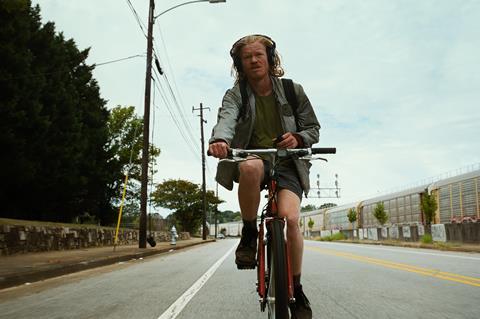
Film is now a core part of Fremantle’s portfolio. Scrosati says the company has produced over 80 feature films since 2020. These include titles such as Yorgos Lanthimos’s Poor Things, Sofia Coppola’s Priscilla, Edward Berger’s Conclave, Pablo Larraín’s Maria and Paolo Sorrentino’s Parthenope.
He expects Fremantle to hit 100 delivered films in 2026, with its labels involved in upcoming titles including Karim Ainouz’s Rosebush Pruning starring Callum Turner, Riley Keough, Jamie Bell and Pamela Anderson through The Apartment; Seance On A Wet Afternoon directed by Tomas Alfredson, written by Jack Thorne, starring Rachel Weisz and Matthew Macfadyen through Element and Astral; Dumb Luck, based on the hit Vietnamese novel directed by Phan Gia Nhat Linh through Beach House Pictures; and Johan Renck’s Saddam Hussein story Amo Sadam through Sinestra.
Scrosati says the film focus is part of a Fremantle strategy to “partner with talent on any creative venture they would like to do”, whether unscripted TV, drama series, movies or documentaries.
He cites the example of Sorrentino who started working with Wildside on series The Young Pope, and more recently has focused on movies. “For us to be his partner is really important, because we believe he is an incredible talent.”
Label diversity
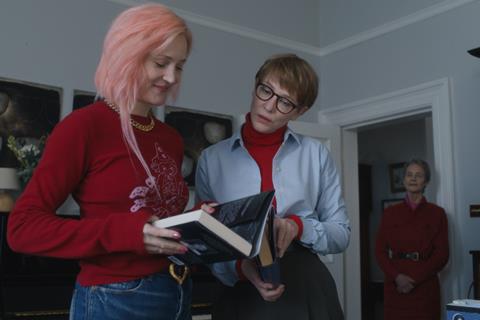
Fremantle’s Venice line-up might be dominated by festival-friendly titles produced by The Apartment and Element Pictures, but Scrosati also highlights the “diversity” of the group’s film labels.
Veteran German producer UFA focuses on commercial German-language features as well as series. France’s Srab Films – behind Ladj Ly’s Les Misérables and Alice Diop’s Saint Omer – recently joined Fremantle through its 2024 acquisition of Asacha Media Group, as did Italy’s Picomedia which produced The Return, starring Ralph Fiennes and Juliette Binoche.
Fremantle also has a partnership with Chile’s Fabula Pictures, producer of the Angelina Jolie-starring Maria.
In Asia, meanwhile, Fremantle owns Singapore-based Beach House Pictures, whose label Momo Pictures produced A Useful Ghost – Thailand’s entry for the 2026 Academy Awards.
Others have also left Fremantle post-acquisition, notably Mario Gianani and Lorenzo Mieli, founders of the Wildside and The Apartment, whose new label Our Films is now part of the rival Mediawan group.
Scrosati stresses both are great producers and that Fremantle continues to collaborate with them on specific projects such as Venice title Portobello.
He also talks up Sonia Rovai and Annamaria Morelli who now lead Wildside and The Apartment, noting key Italian talents who worked with the labels two years ago are working with them today.
Upcoming Wildside projects include Permafrost (working title) by Lucia Calamaro and Green Family by Giambattista Avellino, while The Apartment has Ketticè by Giovanni Tortorici with Monica Bellucci and Föa by Margherita Ferrari.
Acquisition strategy
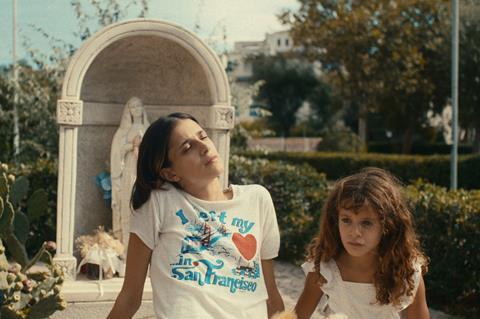
Will Fremantle’s acquisition spree continue given the challenges in the wider entertainment industry?
“Every acquisition we have done has been based on a very clear strategic rationale, because we wanted to expand in a certain area,” Scrosati says, citing the 2022 acquisition of Element Pictures to increase its profile in the international film business.
The company also expanded in the premium documentary space through acquisitions such as 72 Films and Wildstar Films.
“What we don’t do are acquisitions that are about buying revenue,” adds Scrosati, pointing out Fremantle is ultimately family owned through Bertlesmann and invests for the mid- to long-term.
He points out that until about 18 months ago, “you did see deals happening in the market that appeared a little irrational”.
Scrosati says if the right opportunity presents itself, “we would definitely look at it”.
However, the company’s main focus since its acquisition of Asacha Media Group and Beach House Pictures at the start of 2024 has shifted to post-merger integration and margin improvement.
Earlier this year, Fremantle’s management team set out five key priorities as part of a strategy review, among them ramping up its own IP development and focusing on IP-driven acquisitions of small and medium-sized production companies rather than bigger deals.
Meanwhile, parent company RTL has denied press reports last year that it is considering the sale of a minority stake in Fremantle. (“These rumours have no substance. Expanding our global content business, Fremantle, is one of RTL Group’s strategic priorities,” an RTL spokesman tells Screen.)
Fremantle has also pushed a long-stated ambition to hit revenue of €3bn into the “mid-term”, after its revenue fell from €2.27bn in 2023 to €2.25bn in 2024 amid wider industry challenges such as the impact from the 2023 US strikes, as well as budget cuts from streamers and ad-supported broadcasters.
Artificial intelligence
Another key area of focus for Fremantle is exploring the use of AI across development and production. Earlier this year, it launched Imaginae Studios, a cross-genre, standalone production brand under Scrosati to “harness the power of artificial intelligence”.
“You have to look at AI as an innovation in the way you can physically produce,” insists Scrosati, arguing it is the latest in a long line of technical changes to disrupt the creative industries. “AI is a technical tool that permits creatives to do things in a way you could not do before. If you look at AI in this way, it’s a great opportunity.” Not only will it lead to efficiencies, it will also reduce barriers to entry for new talent, he says.
Scrosati notes Bertelsmann also owns Penguin Random House, the largest book publisher in the world – so copyright and IP protection are naturally “fundamental” to its approach to AI. “If companies and entities like ours embrace AI, it means it will be done in the right way, protecting whatever is a human creation, and making sure that AI tools are used in a way that doesn’t steal that creation.
“But that doesn’t mean you shouldn’t look at the technology. You have to look at the technology, because there’s an opportunity now.”

























No comments yet